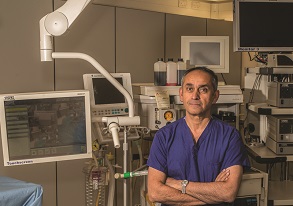Darzi sets out 10-point health and care reform plan
In the final report of his review of the future of health and care, commissioned by the Institute for Public Policy Research, Lord Darzi, a former Labour health minister, also set out a 10-point offer to the public. This details the health and care services that would be provided if the investment and reform plan is adopted.
In his interim report, published in April, he called for additional investment of at least an extra £50bn for the NHS (returning to the long-term funding trajectory) and £10bn for social care by 2030. Even then, radical reform would be needed to improve productivity.
With the NHS approaching its 70th anniversary, there are reports that the government will outline a long-term funding settlement of between 3% and 4% as early as next week.
The need for additional funding is repeated in the final report and 10-point plan. The plan for revitalising health and care includes:
- Invest in health – embracing health across all government policies and taking seriously the threats from obesity, smoking and alcohol
- Tilt towards tech – investing in technology and digital infrastructure to enable data sharing and increasing automation to release time to care. Automation could provide efficiency opportunities of £12.5bn for the NHS and £6bn for social care
- Unlock the potential for health to drive wealth – significantly increasing research and development spending and re-establishing the National Institute for Health and Care Excellence as an ‘innovators’ gateway’
- Make social care free at the point of need – fully funding the service as part of a new social contract between citizens and the state
- Establish a new deal for general practice, community and mental health services – creating a new option for integrated trusts providing out-of-hospital services and shifting funding and power away from acute care
- Radically simplify the system – joining up arm’s length bodies, including NHS England, NHS Improvement and Health Education England into a single body, with commissioning functions handled at regional level by health and care authorities
- Revitalise quality as the organising principle of health and care – creating a coherent strategy for health and care that moves from ‘control’ to ‘improvement’
- Invest in the talent of the team – ensuring adequate staffing by creating an integrated skills and immigration policy and offering fair pay across health and care
- Provide time and resources to transform health and care – providing a fully funded transformation fund, including capital funding
- A long-term funding settlement – ending the ‘feast or famine’ cycle of funding by returning the NHS to its long-term growth trajectory and ring-fencing National Insurance increases to pay for it.
The 10-point offer to citizens includes the promise of free personal and nursing care; fast and convenient access to primary care; shorter waiting times, with no trolley waits and no cancelled operations; and enough nurses and doctors in hospitals and GP surgeries.
In their foreword, Lord Darzi (pictured) and former Conservative health minister Lord Prior said a properly funded NHS was the foundation of a fair, cohesive and inclusive society.
‘We call for greater public investment: a long-term settlement that returns the NHS to its historic rate of funding growth. In return, we propose a simplified, reformed and improved service. This means embracing 21st century technology, joining up health and care around the individual, and freeing up staff on the frontline to care.’
They added: ‘Our plan for investment is also a plan for reform. High quality health and social care is a moving target; to stand still is to fall back. In this year of anniversaries, we must embrace and accelerate change to capture all the possibilities of the decades that lie ahead.
Saffron Cordery, the deputy chief executive of NHS Providers, said: ‘As we approach the 70th anniversary of the NHS, this report is a further helpful contribution to the debate on the future of health and social care.
‘It is right to emphasise the need for clarity over long-term funding. It is also important to ensure there is sufficient time and resources set aside to facilitate the transformation of services, so they can adapt to the changing needs of the communities they serve. And we agree that quality of care should be the organising principle for health and care.’
She added: ‘We would do well to hold fast to these principles as we shape services to meet future challenges.’
Related content
We are excited to bring you a fun packed Eastern Branch Conference in 2025 over three days.
This event is for those that will benefit from an overview of costing in the NHS or those new to costing and will cover why we cost and the processes.